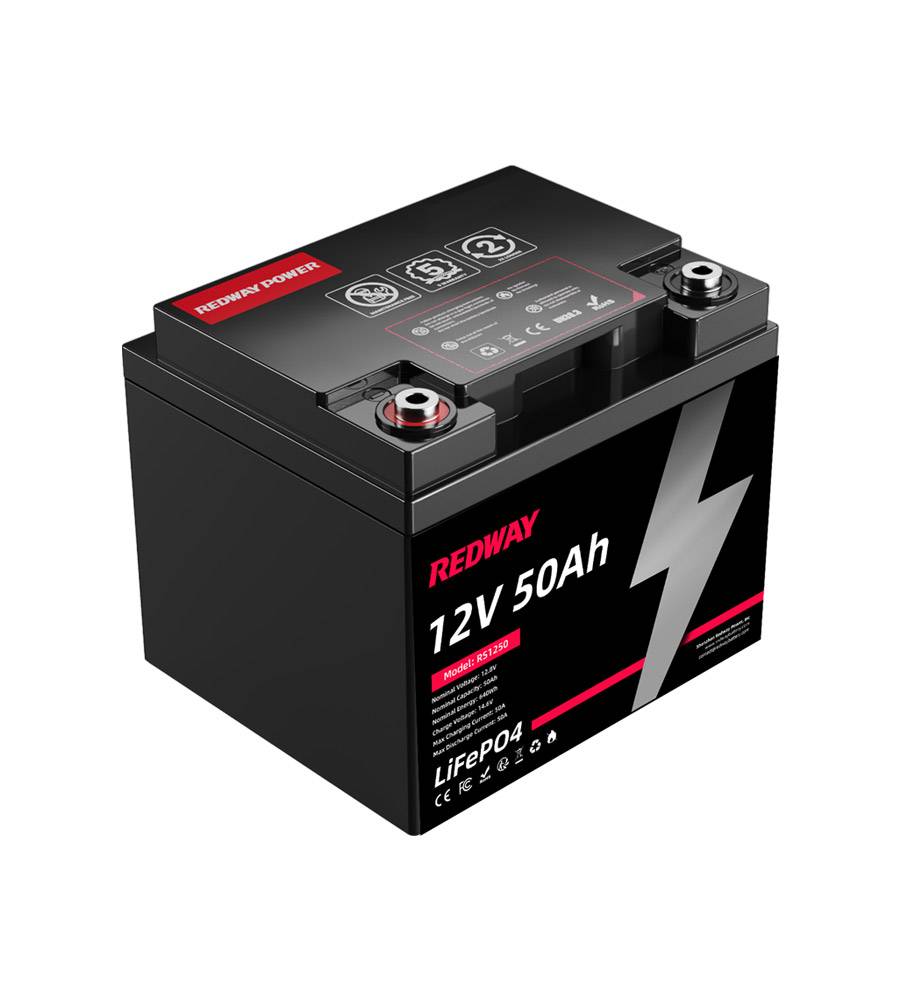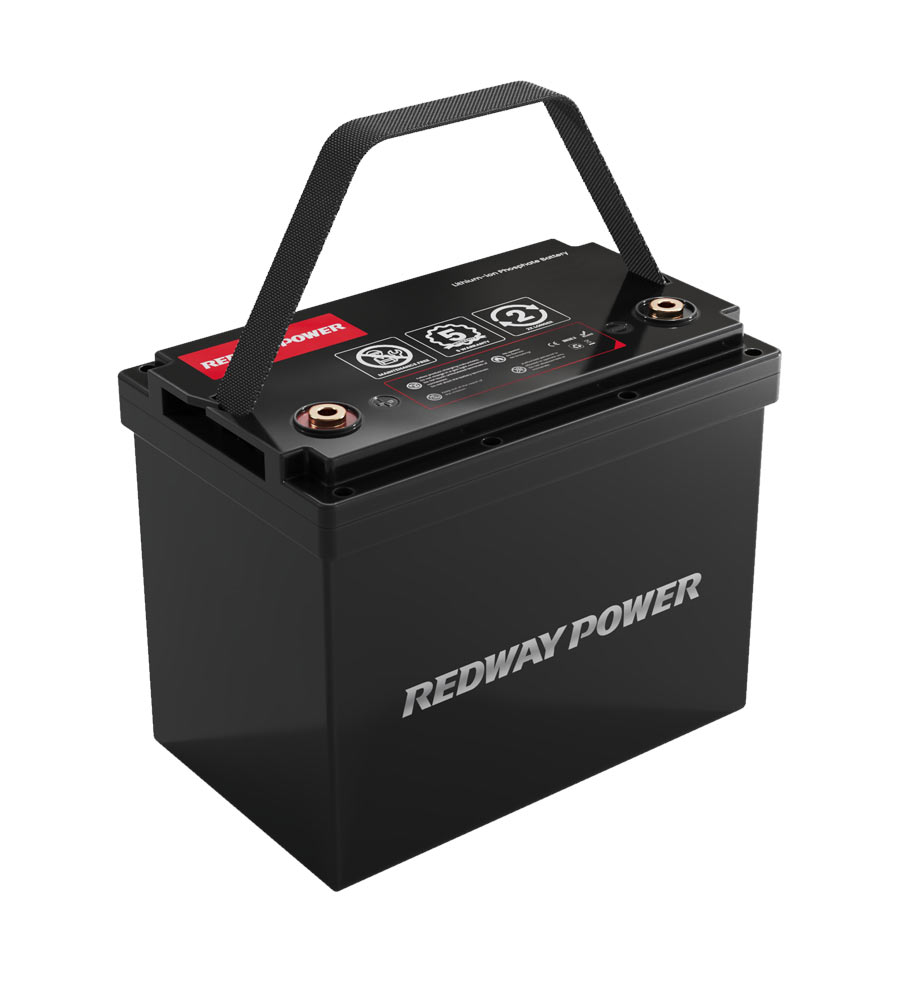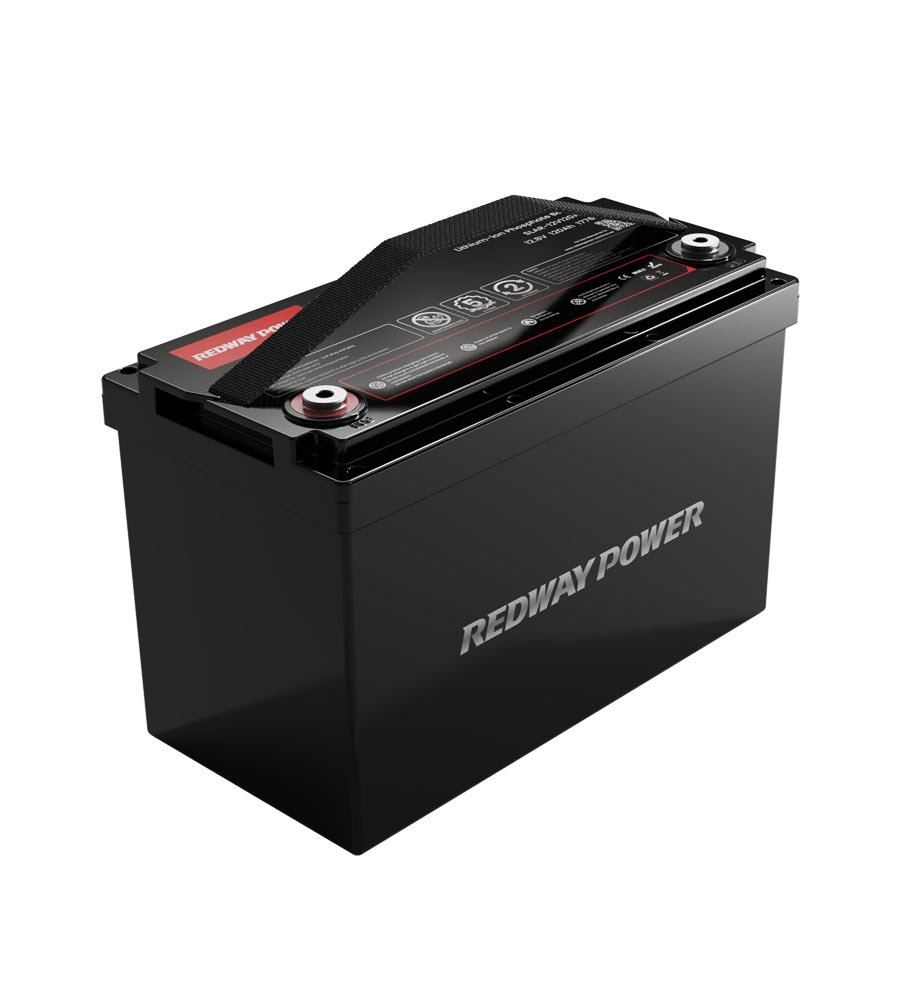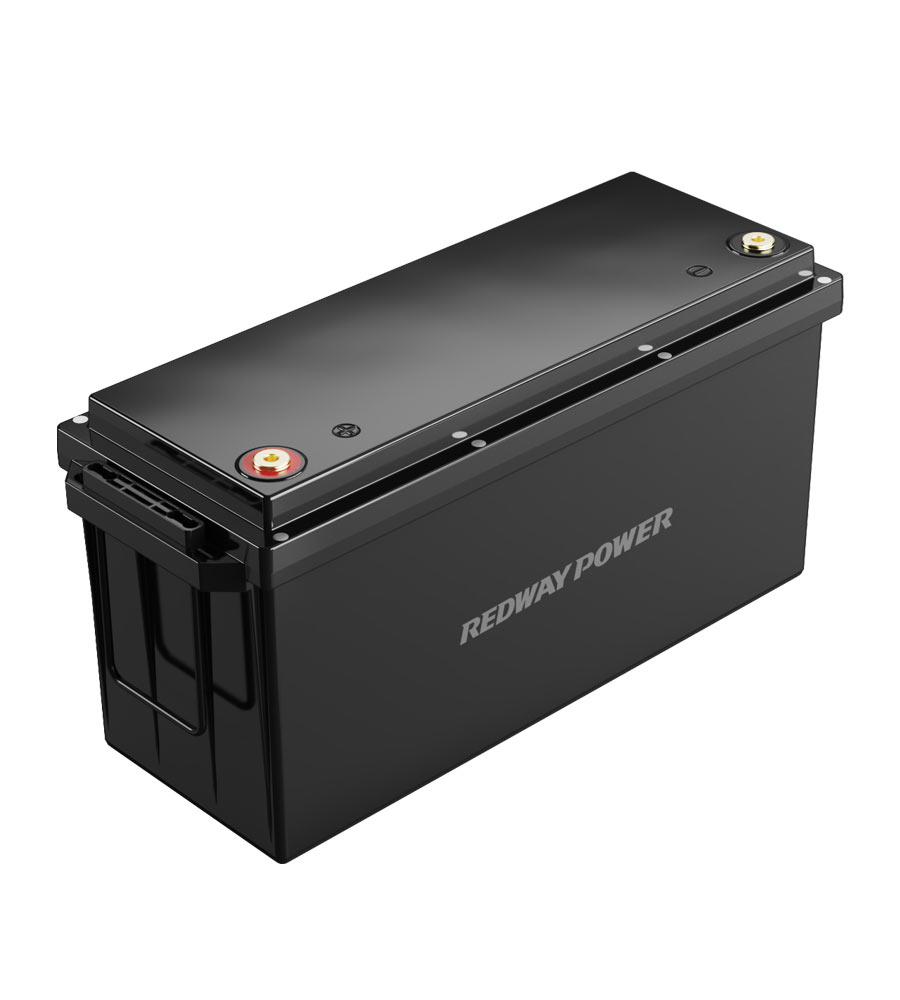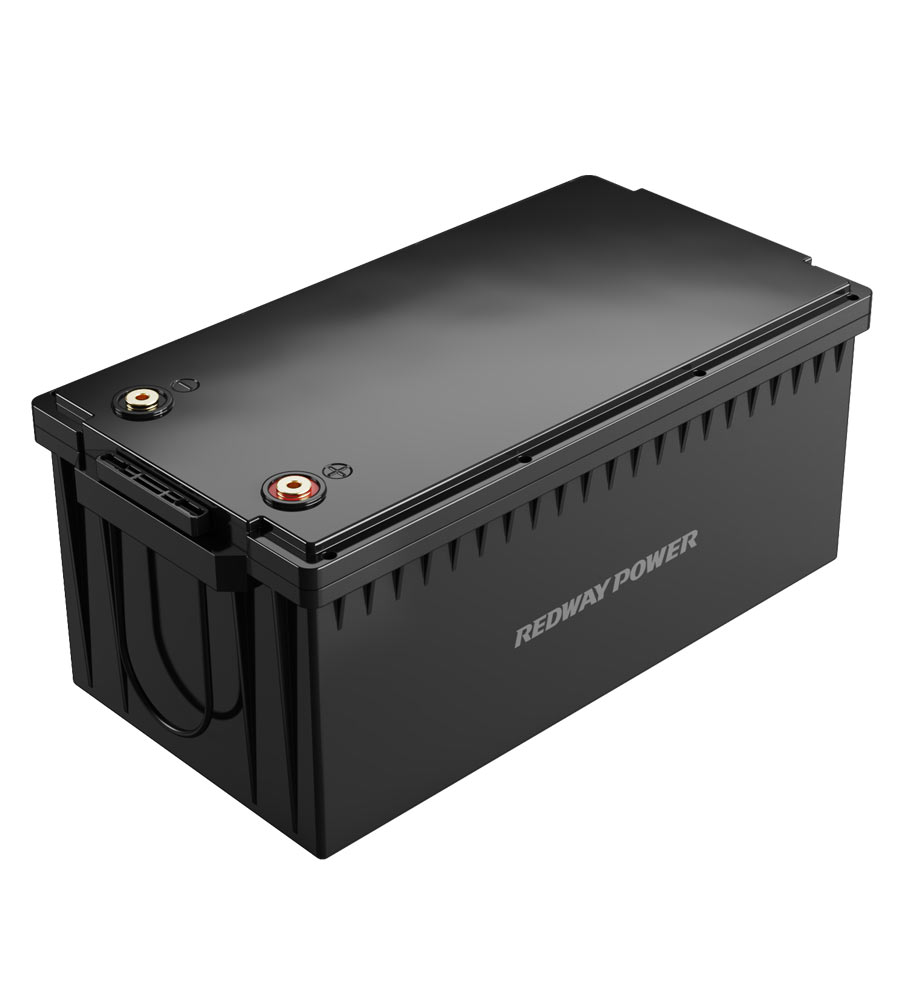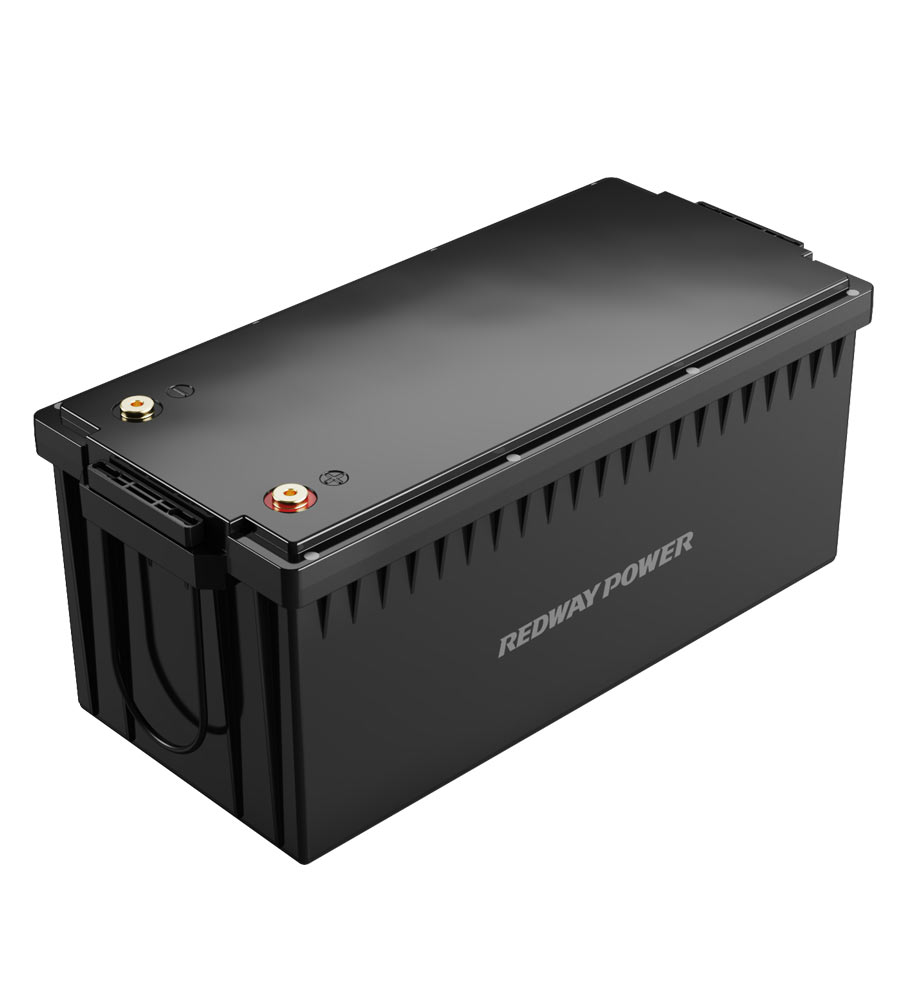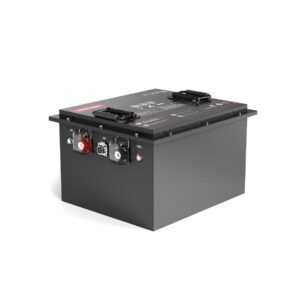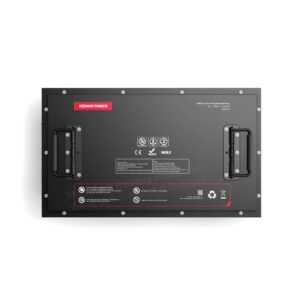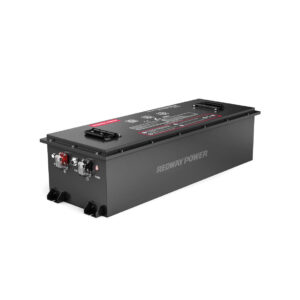LiFePO4 RV Batteries Manufacturer, Factory, Supplier In China
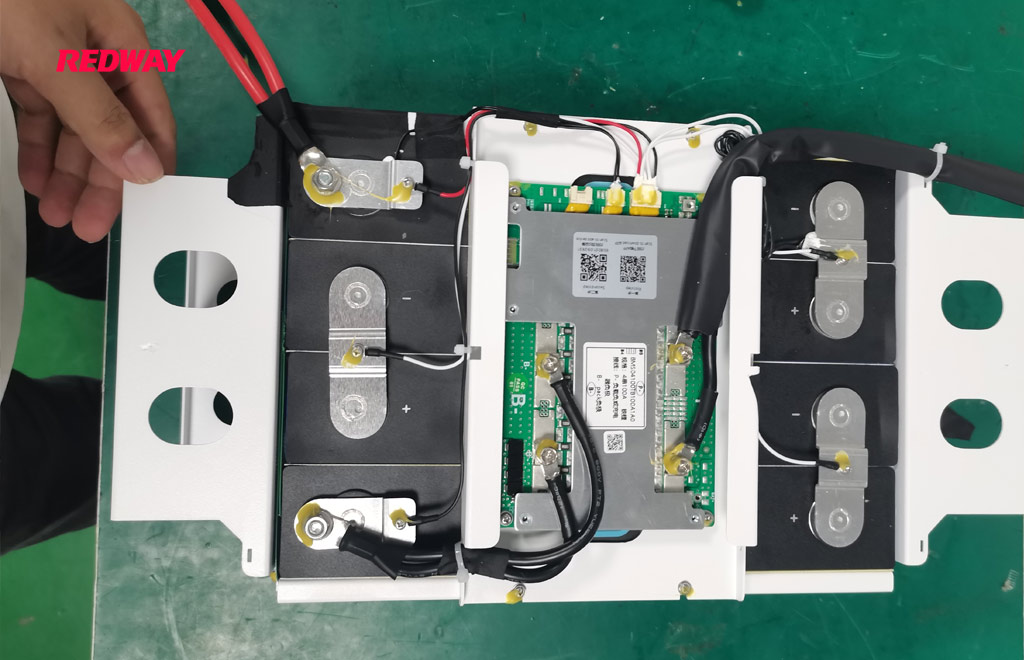
Wholesale LiFePO4 RV Batteries, Just in One Place - The Ultimate Solution
Factory Wholesale LiFePO4 RV Batteries
Redway Battery offers wholesale LiFePO4 RV batteries, providing a one-stop solution for diverse needs. As a leading manufacturer, Redway specializes in lithium-ion batteries tailored for RV applications. Their LiFePO4 RV batteries offer a lightweight design, require low maintenance, and can be discharged to a greater extent without risk.
Why choose Redway Battery?
Redway Battery, located in China, stands at the forefront of innovation in the field of energy storage systems. We have two advanced production bases and a state-of-the-art R&D Center. In the industry since our inception in 2012, we have committed unwaveringly to building a reputation for unmatched reliability.
The positive feedback and product reviews we receive are testimonials from satisfied customers who appreciate and trust the exceptional quality of our offerings. In the absence of self-promotion, we take pride in letting our clients’ voices speak for our brand.
- The highest quality batteries designed based on China quality standards, offering high performance, high durability, and excellent cycle life.
- Lead-acid batteries can be replaced with lithium iron phosphate, with options for custom battery packs and energy solutions.
- With state-of-the-art manufacturing equipment, we are able to deliver batteries in a timely manner to our customers.
- With outstanding after-sale support and the best battery replacement warranty, the company provides excellent customer service from enquiry to delivery.
- Strong OEM/ODM production ability and delivery to global customers directly
- Redway is a socially responsible company with community donations and green initiatives.

LiFePO4 RV Batteries Factory Supplier
Redway is a leading factory supplier of advanced LiFePO4 RV batteries, specifically designed for various recreational vehicle brands such as Forest River Inc., Thor Motor Coach, Tiffin Motorhomes, Fleetwood RV, Jayco RVs, Winnebago, Grand Design RV, Newmar, Coachmen RV, and Airstream. As a manufacturer and wholesaler, Redway specializes in providing OEM customized battery packs built with lithium iron phosphate technology.
Forest River
Empower your business with Redway Battery’s advanced LiFePO4 lithium power solutions for Hyster forklifts.
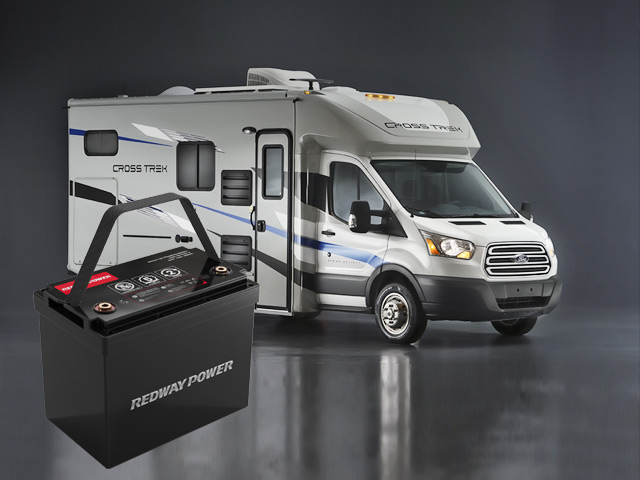
Thor Motor Coach
Redway Battery: Reliable LiFePO4 Power. OEM Solutions for Toyota Forklifts.
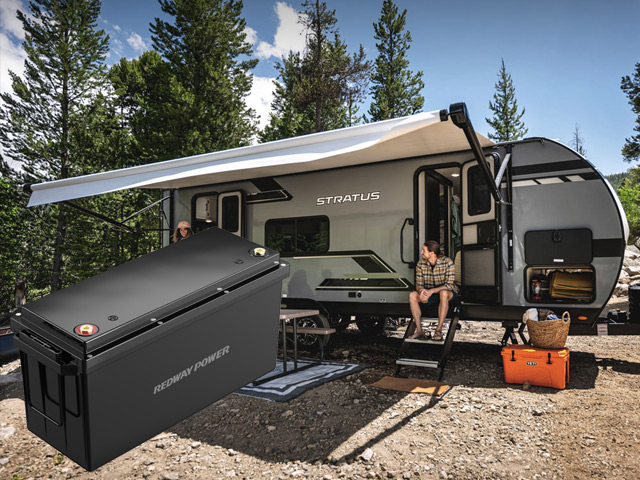
Tiffin Motorhomes
Redway Battery: Crown Compatible, Performance Driven. LiFePO4 Power for Your Business.
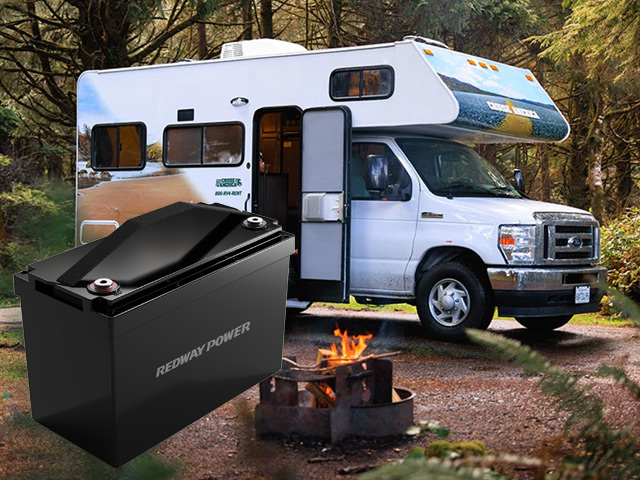
Fleetwood RV
Redway Battery: Powering Your Hyundai. Longer Life, Higher Performance.
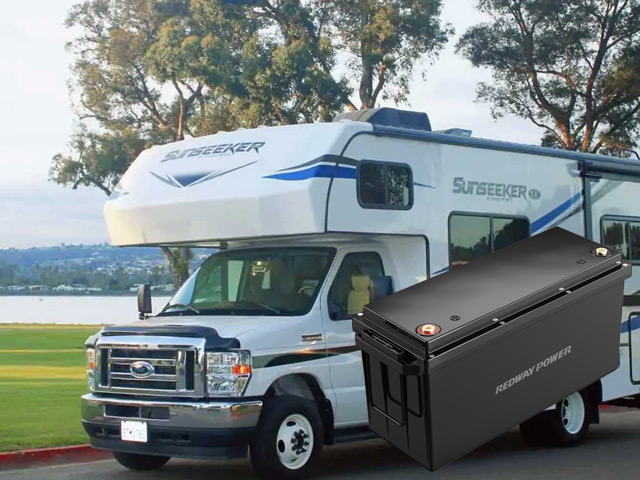
Jayco RVs
Upgrade Your Linde Fleet: Redway LiFePO4 – The Smartest Battery Investment.
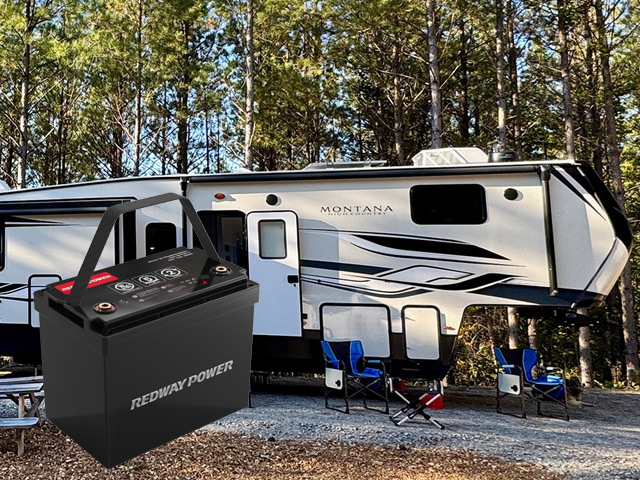
Winnebago
Redway Battery: Maximize Uptime, Minimize Costs. LiFePO4 for Clark Forklifts.
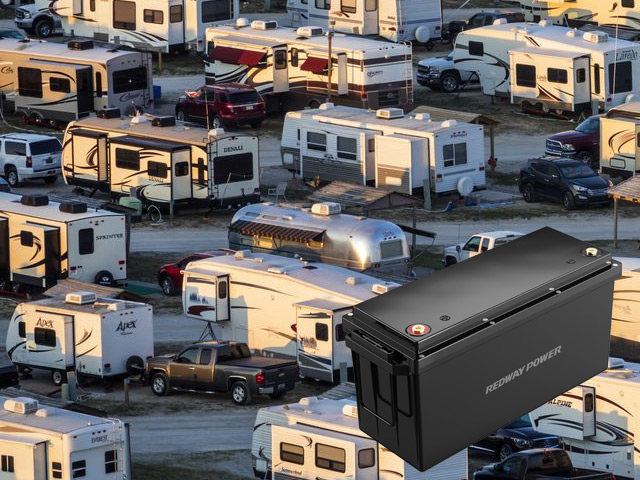
Certificates From Lithium Battery Manufacturer And Factory
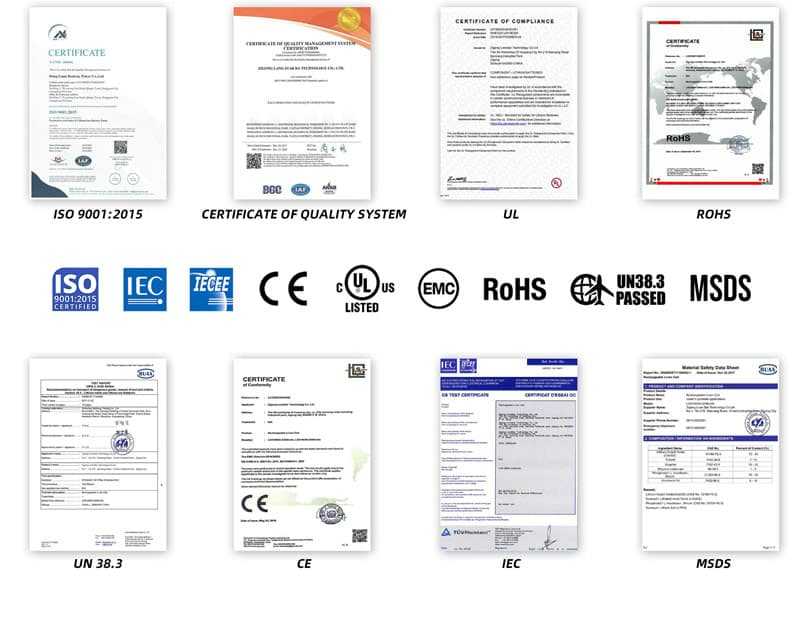
Have a Special Requirement?
Specification
Please let us know the operating voltage requirements; and if any additional functions are needed, such as 10 second discharge and 10 second charge.
Quantity
A minimum order quantity (MOQ) is not required. However, a maximum quantity will help you get a better price. The more quantity you order, the lower the price you can get.
Application
Our engineers can provide you with more suggestions under your budget if you let us know your application or details about your project.
The Ultimate Guide to LiFePO4 RV Batteries
What are LiFePO4 RV Batteries?
LiFePO4 RV batteries are lithium iron phosphate batteries specifically designed for recreational vehicles. They provide reliable energy storage with a longer lifespan and faster charging capabilities compared to traditional batteries, making them ideal for powering appliances and systems in RVs.
What is the chemical composition of LiFePO4 batteries?
LiFePO4 batteries consist of lithium iron phosphate (LiFePO4) as the cathode material, graphite as the anode, and a lithium salt electrolyte. This composition offers excellent thermal stability and safety, making them suitable for various applications, including RVs.
How do LiFePO4 batteries differ from traditional lead-acid batteries?
LiFePO4 batteries differ from traditional lead-acid batteries in several ways: they are lighter, have a longer cycle life (up to 6,000 cycles), faster charging times, and can be discharged more deeply without damage. They also have lower self-discharge rates and enhanced safety features.
What are the typical applications of LiFePO4 batteries in RVs?
Typical applications for LiFePO4 batteries in RVs include powering lighting, appliances, heating systems, and electronic devices. Their high energy density makes them suitable for off-grid camping and extended trips where reliable power is essential.
Why Choose LiFePO4 Batteries for RVs?
LiFePO4 batteries are chosen for RVs due to their lightweight design, long lifespan, fast charging capabilities, and safety features. They provide consistent power output, making them ideal for various RV applications while reducing overall weight.
Why are LiFePO4 batteries considered safer for RV use?
LiFePO4 batteries are considered safer for RV use due to their stable chemical composition, which minimizes the risk of thermal runaway and fire. They also have built-in protection features against overcharging and short circuits.
What advantages do LiFePO4 batteries offer in terms of longevity and performance?
LiFePO4 batteries offer significant longevity with up to 6,000 charge cycles at 80% depth of discharge. They maintain consistent performance across various temperatures and provide stable voltage output, enhancing reliability during use in RVs.
Why is a Battery Management System (BMS) essential for RV battery systems?
A Battery Management System (BMS) is essential for monitoring battery health, managing charging and discharging processes, and ensuring safety by preventing overcharging or deep discharging. It optimizes performance and extends the lifespan of LiFePO4 batteries.
How to Install LiFePO4 Batteries in an RV?
To install LiFePO4 batteries in an RV, ensure proper ventilation and secure mounting. Connect the positive and negative terminals according to manufacturer guidelines. Use appropriate wiring to prevent overheating or short circuits during operation.
How do you properly install a LiFePO4 battery in an RV?
Proper installation involves securing the battery in a stable location within the RV, connecting it to the power distribution system with appropriate gauge wiring, and ensuring all connections are tight before powering on any devices.
What safety precautions should be taken during RV lithium batteries installation?
During installation, wear personal protective equipment (PPE), ensure the power is disconnected before connecting terminals, follow manufacturer guidelines closely, and avoid over-tightening connections to prevent damage or shorts.
How to Optimize Space When Installing Multiple Batteries in RVs
To optimize space when installing multiple LiFePO4 batteries in RVs, consider using custom battery trays or racks that fit snugly within available compartments. Arrange batteries vertically or horizontally based on dimensions while ensuring proper ventilation around each unit.
Maintenance of LiFePO4 RV Batteries
What regular maintenance practices are necessary for LiFePO4 batteries?
Regular maintenance for LiFePO4 batteries includes checking connections for corrosion, ensuring terminals are clean, monitoring state of charge, and keeping the battery in a cool, dry place. Periodic inspections help identify potential issues early, ensuring optimal performance.
How can you troubleshoot common issues with RV lithium batteries?
To troubleshoot common issues, check connections for looseness or corrosion, ensure the battery is charged, and verify that the charger is compatible. Monitor the Battery Management System (BMS) for error codes and reset if necessary. If problems persist, consult a professional.
What indicators should you monitor to ensure battery health?
Monitor indicators such as state of charge (SoC), voltage levels, temperature, and discharge cycles. Regularly check for alerts from the Battery Management System (BMS) to identify any potential issues affecting battery performance.
Choosing the Right LiFePO4 Battery for Your RV
What factors should be considered when selecting a LiFePO4 battery for an RV?
Consider factors such as capacity (Ah), weight, dimensions, voltage compatibility, discharge rates, and warranty. Additionally, evaluate the manufacturer’s reputation and customer reviews to ensure reliability and performance in your specific RV application.How do different brands (e.g., Battle Born, Renogy) compare in performance and price?
Battle Born batteries are known for their high performance and reliability but come at a premium price. Renogy offers more budget-friendly options with decent performance. Both brands have solid reputations; however, Battle Born may be preferred for long-term use.What are the best models of LiFePO4 RV batteries available in 2025?
Top models in 2025 include Battle Born’s 100Ah lithium battery for reliability and performance, Renogy’s 100Ah lithium battery for affordability, and SOK’s 100Ah model for versatility. Each offers unique advantages tailored to various RV needs.
Performance and Efficiency of LiFePO4 Batteries
How do temperature extremes affect the performance of LiFePO4 batteries in RVs?
Temperature extremes can significantly impact LiFePO4 battery performance. High temperatures may lead to faster degradation, while low temperatures can reduce capacity and efficiency. Maintaining an optimal operating temperature range is crucial for longevity and reliability.What is the cycle life of typical LiFePO4 batteries used in RVs?
Typical LiFePO4 batteries used in RVs offer a cycle life ranging from 2,000 to 6000 cycles at 80% depth of discharge 0.5C. Their longevity makes them a cost-effective choice for frequent cycling applications in recreational vehicles.How does the energy density of LiFePO4 batteries benefit RV users?
The high energy density of LiFePO4 batteries allows RV users to store more energy in a lighter package compared to traditional lead-acid batteries. This results in reduced weight on the vehicle while providing ample power for appliances and systems during trips.
Safety Features of LiFePO4 Batteries
What safety features should be included in a quality LiFePO4 battery for RVs?
Quality LiFePO4 batteries for RVs should include thermal protection, overcharge and over-discharge protection, short-circuit prevention, and a robust Battery Management System (BMS). These features enhance safety by preventing overheating and ensuring stable operation.How can users prevent overheating and other risks associated with lithium batteries?
Users can prevent overheating by ensuring proper ventilation, avoiding overcharging, regularly inspecting battery connections, and using a reliable BMS. Additionally, keeping the battery within recommended temperature ranges helps mitigate risks.Why is it important to have a reliable BMS in place?
A reliable Battery Management System (BMS) is crucial for monitoring battery health, managing charging and discharging processes, and preventing issues like overcharging or deep discharging. It enhances safety and prolongs the lifespan of LiFePO4 batteries.
Environmental Impact and Sustainability
How do LiFePO4 batteries contribute to sustainable energy solutions for RVs?
LiFePO4 batteries support sustainable energy solutions by providing efficient energy storage for solar power systems in RVs. Their long lifespan and recyclability reduce waste, while their non-toxic materials minimize environmental impact.What recycling options are available for used LiFePO4 batteries?
Used LiFePO4 batteries can be recycled through specialized facilities that recover valuable materials like lithium, iron, and phosphate. Many manufacturers offer take-back programs to ensure proper disposal and recycling.Why is it important to consider environmental factors when choosing an RV battery?
Considering environmental factors is essential to minimize ecological impact. Choosing eco-friendly batteries reduces pollution, promotes sustainability through recycling, and supports efforts to reduce reliance on fossil fuels.
Relevant Questions
What is the lifespan of a LiFePO4 RV battery compared to lead-acid?
LiFePO4 RV batteries typically have a lifespan of 2,000 to 6,000 cycles at 80% depth of discharge, significantly longer than lead-acid batteries, which usually last 250 to 500 cycles. This longevity makes LiFePO4 a more cost-effective option.Can I use a LiFePO4 battery as a backup power source for my RV appliances?
Yes, LiFePO4 batteries can be used as a backup power source for RV appliances. They provide reliable energy storage and can efficiently power various devices during trips or outages.How much do LiFePO4 RV batteries typically cost?
LiFePO4 RV batteries typically range from $700 to $1,500 depending on capacity and brand. While the initial investment is higher than lead-acid options, their longer lifespan and efficiency often lead to lower total costs over time.Are there compatibility issues with existing RV electrical systems when switching to lithium?
There may be compatibility issues when switching to lithium batteries due to differences in voltage and charging requirements. It’s essential to ensure that the existing electrical system can accommodate the new battery type or make necessary adjustments.What are the best practices for charging and discharging these batteries?
Best practices include using a charger specifically designed for LiFePO4 batteries, avoiding deep discharges below 20%, and maintaining optimal temperature conditions. Regularly monitor state of charge (SoC) to ensure efficient operation and longevity.

